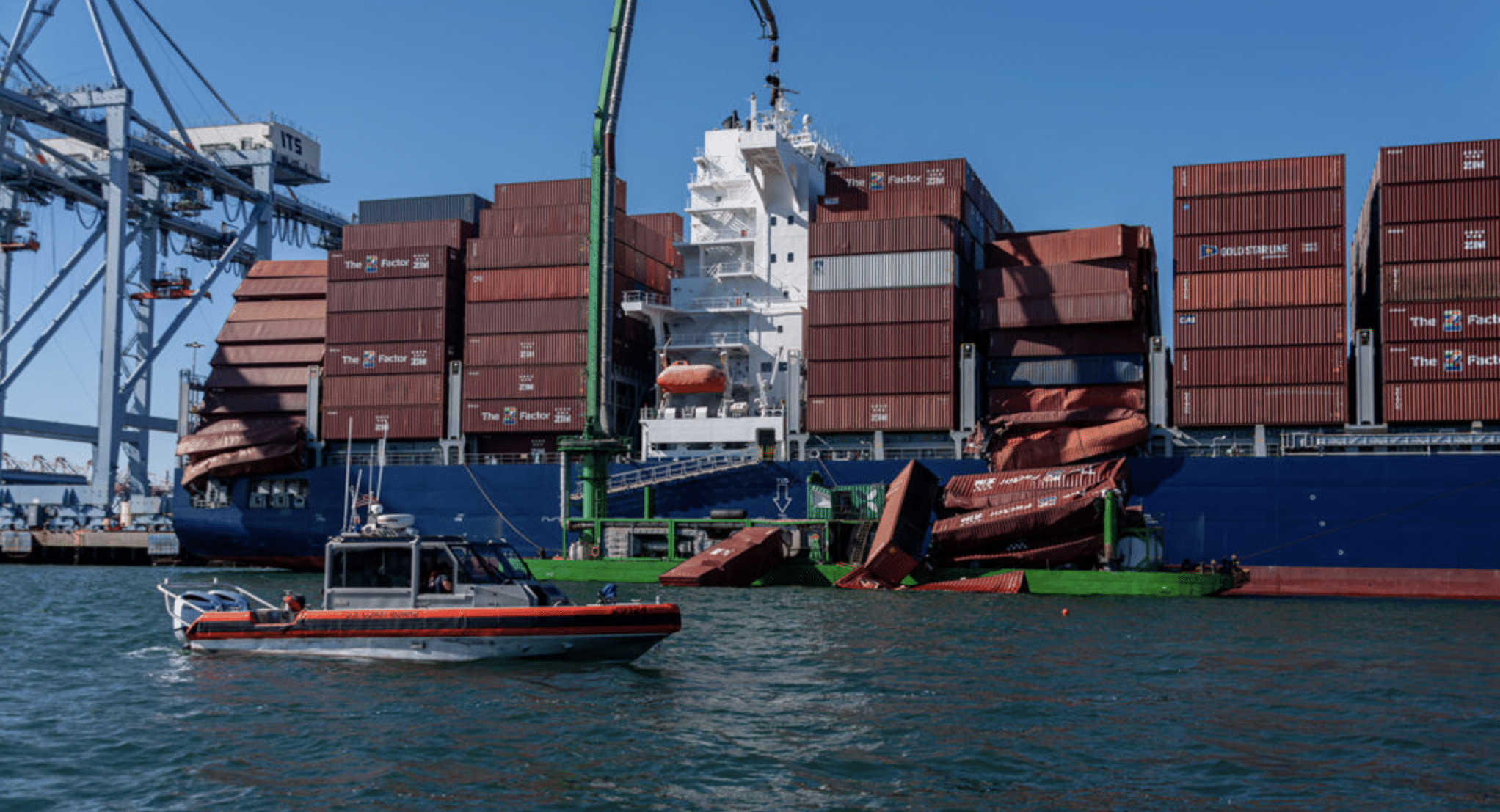Major seafood port on US West Coast reopened following container spill

The Port of Long Beach, the second-largest seafood import port in the U.S., is back to normal operations following a significant incident involving a cargo ship. On September 9, a mishap caused approximately 75 containers from the Portuguese-flagged Mississippi to tumble into the harbor. While salvage efforts are underway to recover the submerged containers, port officials assure that all terminals remain operational, alleviating concerns for seafood importers.
Incident Details and Immediate Response
On Tuesday, while docked at Pier G, the Mississippi cargo ship experienced an unknown issue that led to a stack of containers falling into the water. This incident prompted a temporary halt in cargo operations at the pier as port authorities devised a salvage plan. The plan includes sonar surveys to locate around 25 to 30 containers that are currently submerged beneath the harbor’s surface. The U.S. Coast Guard has established a 500-yard safety zone around the vessel to ensure the safety of personnel and ongoing operations.
Despite the disruption, the Port of Long Beach confirmed on September 10 that all terminals are “open and operable.” This reassurance is crucial for U.S. seafood importers, who rely heavily on this port for their supply chain. In 2024, the Los Angeles customs district, which encompasses Long Beach, imported 565,108 metric tons of seafood from 137 countries, valued at $4.1 billion. This makes it the second-largest seafood port in the nation, following New York, which handled 642,994 metric tons worth $5.2 billion during the same period.
Impact on Seafood Imports and Future Outlook
The Port of Long Beach plays a vital role in the U.S. seafood market, with major suppliers including Indonesia, Vietnam, and India. In 2024, Indonesia exported 63,484 metric tons of seafood valued at $527.6 million, while Vietnam sent 83,088 metric tons worth $490.6 million. India contributed 54,812 metric tons valued at $416.5 million. The most significant seafood imports through this port include shrimp, totaling 179,576 metric tons worth $1.4 billion, and salmon, which accounted for 51,285 metric tons valued at $628.1 million.
As recovery efforts continue, the Port of Long Beach remains a critical hub for seafood imports, ensuring that supply chains are minimally affected. The swift response from port officials and the Coast Guard highlights the importance of maintaining operational integrity in the face of unforeseen challenges. Seafood importers can breathe a sigh of relief as normal operations resume, allowing them to continue meeting consumer demand across the nation.
